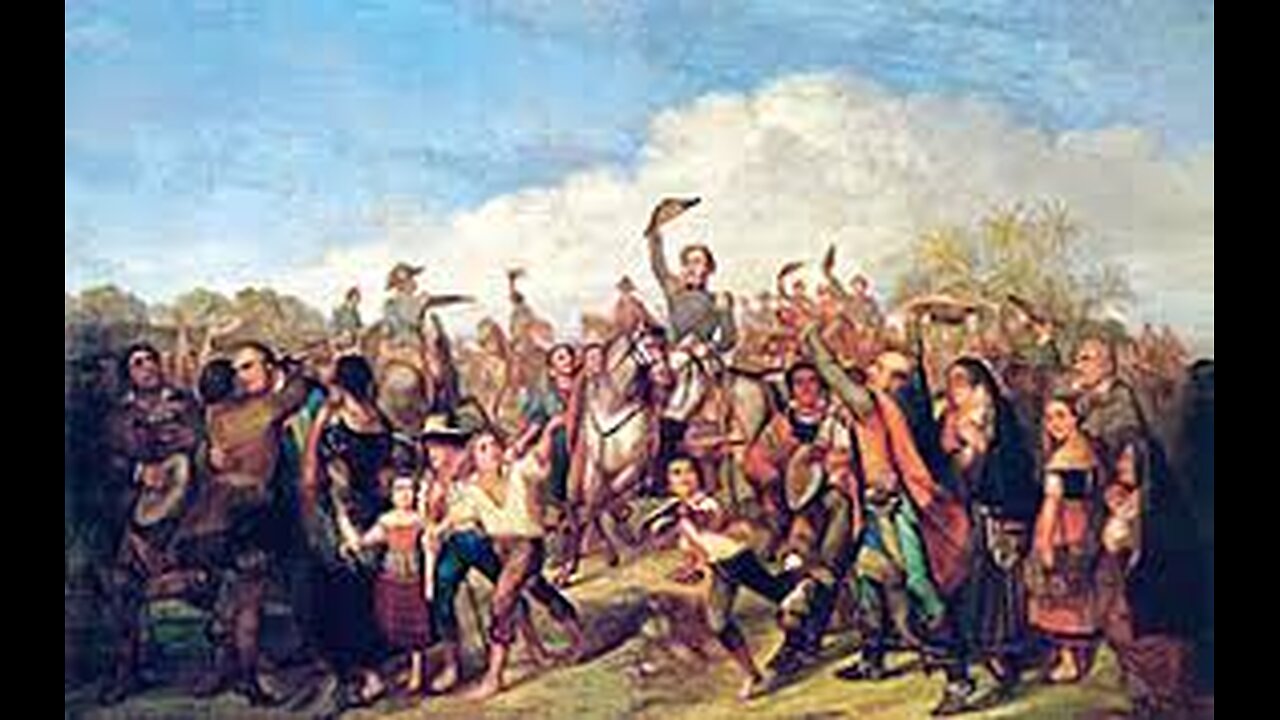Premium Only Content

How did Brazil Became a Country?
Brazil's journey to becoming a country is a complex tale of colonization, exploration, and independence. In 1500, Portuguese explorer Pedro Álvares Cabral claimed the territory for Portugal. Over the following centuries, the Portuguese established colonies and exploited Brazil's resources, primarily through the production of sugarcane and later gold and diamonds.
Brazil's vast size and diverse population, including indigenous peoples, African slaves, and European settlers, shaped its unique cultural identity. In 1808, the Portuguese royal family fled to Brazil to escape Napoleon's invasion, which accelerated Brazil's development as the center of the Portuguese Empire.
By the early 19th century, calls for independence grew louder, fueled by dissatisfaction with Portuguese rule and inspired by other Latin American independence movements. In 1822, Dom Pedro I, the son of the Portuguese king, declared Brazil's independence, establishing the Empire of Brazil and himself as its first emperor.
Although Brazil gained independence peacefully compared to some other Latin American countries, it still faced internal conflicts and struggles, including regional tensions and the abolition of slavery in 1888. The empire eventually gave way to a republic in 1889, marking another significant milestone in Brazil's history as a sovereign nation.
Since then, Brazil has experienced periods of economic growth, political instability, military rule, and democratization. Today, it is the largest country in South America, known for its vibrant culture, diverse ecosystems, and dynamic society.
-
 2:42:59
2:42:59
TimcastIRL
10 hours agoTrump SLAMS Biden Over Boulder TERROR Attack, Protecting Illegals & Leftists | Timcast IRL
192K52 -
 LIVE
LIVE
TylerTodayNews
3 hours ago $0.02 earnedHorror game with friends! Then fighting the galactic war | REPO & Helldivers 2 | Tyler Today Games
270 watching -
 LIVE
LIVE
TheBeardedBrent
1 hour ago🔴LIVE🔥 | WARZONE | THE CASUAL KING | ROAD TO 50 SUBS!!🔥
144 watching -
 2:57:28
2:57:28
Barry Cunningham
10 hours agoTRUMP WORLD END OF THE DAY NEWS AND SPECIAL GUEST JOHN AMANCHUCKWU!
87.1K74 -
 8:39:34
8:39:34
SpartakusLIVE
12 hours agoSPECIALIST Easter Egg ALL DAY || Duos w/ StevieT
52.6K1 -
 1:14:47
1:14:47
FreshandFit
10 hours agoTop 5 Business Credit Cards
88.9K8 -
 5:32:23
5:32:23
iCheapshot
9 hours ago $2.97 earnedPart 2 of a12cat34dog's Ben and Ed No Rage Quit Challenge!
50.9K -
 1:49:53
1:49:53
Glenn Greenwald
13 hours agoDOGE: Promises vs. Reality; Ukraine's Drone Attacks on Russian Air Bases; Gaza Ceasefire Deal Developments | SYSTEM UPDATE #463
146K94 -
 2:13:34
2:13:34
RiftTV/Slightly Offensive
12 hours agoZelensky Declares WAR on RUSSIA.. Trump FUMING Over Surprise ATTACK | The Rift | Guest: Sarah Stock
78.8K98 -
 4:01:13
4:01:13
a12cat34dog
10 hours ago2011 GAME PREDICTS 2027 :: Homefront :: AMERICA HAS FALLEN {18+}
49.1K3